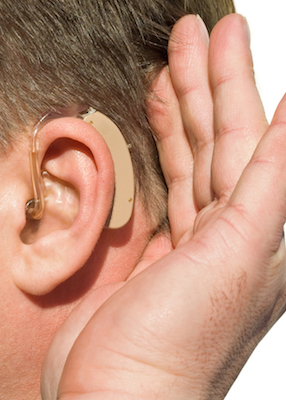Experts urge caution when considering over-the-counter (OTC) hearing aids | Palmer Lutheran Health Center
Experts urge caution when considering over-the-counter (OTC) hearing aids | Palmer Lutheran Health Center
Access to less-expensive hearing aids for those with mild hearing loss just became easier, but experts say to consider more than just the cost before purchasing the do-it-yourself technology.
In October, the FDA’s over-the-counter hearing aids ruling went into effect, which essentially lets consumers purchase hearing aids at stores without the need for a medical exam, prescription or professional fitting.
Although at least in some cases, this new class of hearing aids may cost less than the traditional prescribed version, Gundersen Health System audiologist Angela Manke, Au.D points out it isn’t just the device a patient is paying for. Rather, the price (which can be anywhere from $1,100 to $2,600 each) includes professional services to ensure the hearing aids are custom fit (physically and for best sound) for the individual’s hearing loss and to maintain proper function of the device over its lifetime.
“Patients likely will not be able to purchase these over-the-counter devices elsewhere and then come into a facility to have them adjusted,” Dr. Manke said, adding that fitting, cleaning and adjusting will be left to the buyer.
The goal of OTC hearing aids is to make hearing amplification more accessible to the public, which they do, but purchasing something like this off a store shelf or online creates significant assumed risks and responsibilities for that buyer.
“The buyer does not get the benefit of professional oversight to help them in that process,” Dr. Manke said. “So, while OTC hearing aids might be a viable option for very mild hearing loss as an initial entry into the hearing aid world, we hope that if or when the device doesn’t provide adequate benefit, the OTC hearing aid user takes the next step to see a professional to obtain a trial with a prescription hearing aid,” adding that there is no FDA requirement for OTC hearing aid manufacturers to offer a trial period like prescription hearing aids.
OTC hearing aids are for those 18 years and older with perceived mild-to-moderate hearing loss. More severe cases require prescription aids, as do any individual younger than 18 years of age.
“Children, especially, need to be under the care of an audiologist,” Dr. Manke said.
Up to 30 million people in the United States live with hearing loss, and many aren’t treating the issue. There’s social stigma around hearing loss, Dr. Manke said, as people sometimes equate the condition to “being elderly” or “getting older,” but this stereotype isn't true. Patients of all ages with hearing loss obtain life-changing benefits from treatment, which often includes professionally fit hearing aids.
Health professionals at Gundersen encourage everyone, regardless of age, to begin their hearing health journey with an evaluation by a licensed audiologist. Many hearing conditions exist that, without a professional evaluation, may go uncovered or have dire or worsening consequences if not detected as early as possible.
For more information about hearing aids, or if you’re suffering from hearing loss and would like to talk to a specialist, call Gundersen audiology at (608) 775-2201.
Original source can be found here.



 Alerts Sign-up
Alerts Sign-up